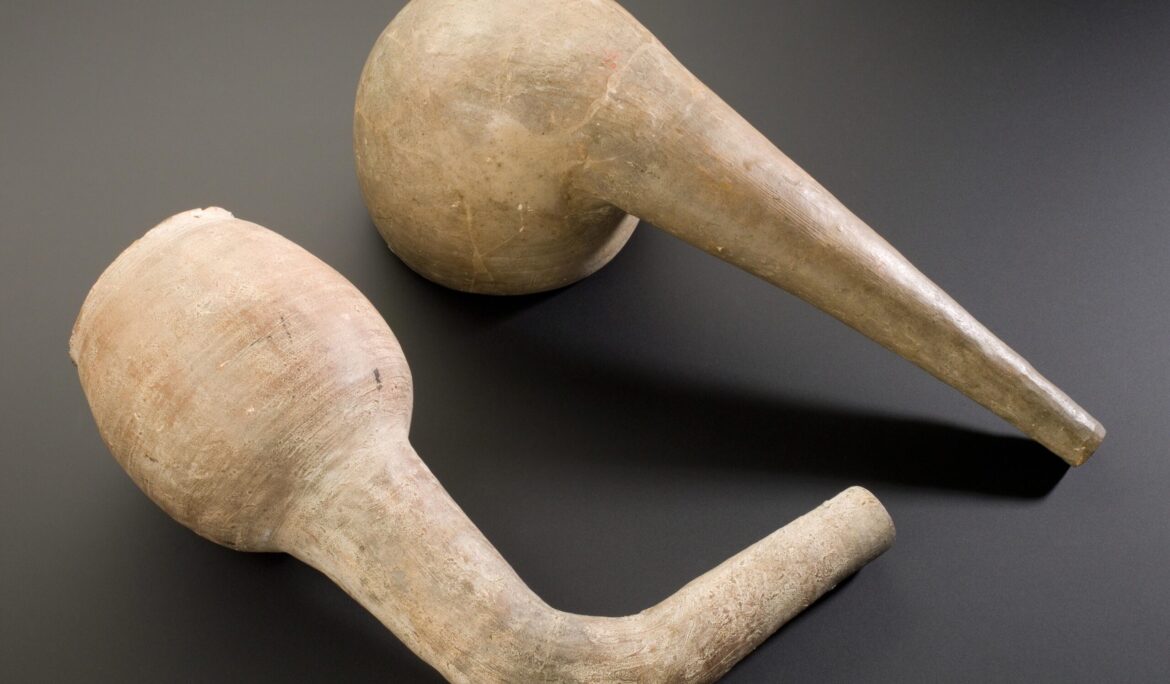Response is failure in the primary mission of preventing CBW
The Global Partnership against the Spread of Materials and Weapons of Mass Destruction has now been around for over two decades. In the wake of the terrorist attacks against the US in September 2001, it started out as an effort to mobilise the resources of the G8 members to prevent terrorist acquisition of nuclear, biological and chemical weapons, and related materials. The weapons, technologies and skills available from the former Soviet Union presented a significant proliferation risk, which the US was already addressing through the Cooperative Threat Reduction (CTR) programme. Now comprising 31 members, the Global Partnership (GP) played a …
The Retort: Evolving CBW disarmament challenges
Dr Brett Edwards (Lecturer, University of Bath) and Professor Lijun Shang (School of Human Sciences, Metropolitan University London) are collaborating on The Retort, a new series of educational video recordings via YouTube on chemical and biological weapons (CBW), their disarmament, and the evolving threats they still pose. The recordings aim to give the public a general understanding of issues ahead of the review conferences of the Biological and Toxin Weapons Convention (28 November – 16 December 2022) and the Chemical Weapons Convention (May 2023). For each video recording, the intiative takers invite an expert in the field. So far, three …
CBW in Regional Disarmament in the Middle East and North Africa
Just published (Open access): Jean Pascal Zanders (2022): Chemical and Biological Weapons in RegionalDisarmament in the Middle East and North Africa, Journal for Peace and Nuclear Disarmament,DOI: 10.1080/25751654.2022.2092368 From the introduction: In November 2019, the Conference on the Establishment of a Middle East Zone Free of Nuclear Weapons and Other Weapons of Mass Destruction held its first session. The new series of annual one-week meetings to eliminate non-conventional arms – essentially nuclear weapons (NW), and to a lesser extent chemical and biological weapons (CBW) – followed the acceptance by the First Committee of the UN General Assembly (UNGA) of Egypt’s …
Impunity through knowledge management: The legacy of South Africa’s CBW programme
Book review: Brian Rappert and Chandré Gould, The Dis-Eases of Secrecy: Tracing History, Memory & Justice (Jacana Media: Johannesburg, 2017), 261p. It took me almost a year to write this book review. There are reasons why. First, the book is not that easy to read. While one can read it linearly (that is one page after another, as one would normally do), it instead invites readers to follow the logic of the argument, which entails dashing back and forwards from one part in the book to another. Second, the insights are profound, and the reader needs to let them sink …
Below the headlines: CBW matters (22)
(A weekly digest from the internet on chemical and biological warfare issues. Emphasis is on incidents and perspectives, but inclusion of an item does not equal endorsement or agreement with the contents. This issue covers items collected between 10 – 16 July 2017.) CBW disarmament Scientists Review Innovative Technologies for Chemical Security (OPCW, 7 July 2017): The Scientific Advisory Board (SAB) of the Organisation for the Prohibition of Chemical Weapons (OPCW) discussed the potential uses innovative scientific and technological tools in the implementation of the Chemical Weapons Convention (CWC) at a workshop “Innovative Technologies for Chemical Security”, held from 3 …
Below the headlines: CBW matters (21)
(A weekly digest from the internet on chemical and biological warfare issues. Emphasis is on incidents and perspectives, but inclusion of an item does not equal endorsement or agreement with the contents. This issue covers items collected between 3 – 9 July 2017.) CBW disarmament OPCW Director-General Election (Roy Lie A Tjam, 4 July 2017): Eight Ambassadors are vying for the post of Director General, each of who have been put forward by their respective governments for the post. The candidates come from the following countries: Burkina Faso, Denmark, Hungary, Iraq, Lithuania, Spain, South Korea and Tanzania. OPCW Director-General Calls …
Below the headlines: CBW matters (20)
(A weekly digest from the internet on chemical and biological warfare issues. Emphasis is on incidents and perspectives, but inclusion of an item does not equal endorsement or agreement with the contents. This issue covers items collected between 26 June – 2 July 2017.) CBW disarmament Russia has destroyed 99% of its chemical weapons – supervising general (RT, 26 June 2017): Russia only has only one percent of its chemical weapons stockpile left. The rest has been destroyed, according to the head of the country’s Federal Administration for the Safe Storage and Destruction of Chemical Weapons, Major General Valery Kapashin. …
Below the headlines: CBW matters (19)
(A weekly digest from the internet on chemical and biological warfare issues. Emphasis is on incidents and perspectives, but inclusion of an item does not equal endorsement or agreement with the contents. This issue covers items collected between 19 – 25 June 2017.) CBW disarmament Blue Grass Army Depot one of state’s largest military installations (Kentucky Today, 19 June 2017): Established in 1941, this military installation, covering 14,594 acres, is the state’s third largest. The facility employs over 700 people (60 percent of whom are veterans) and adds $225 million in economic value to Kentucky. Blue Grass Army Depot fulfills …
Below the headlines: CBW matters (18)
(A weekly digest from the internet on chemical and biological warfare issues. Emphasis is on incidents and perspectives, but inclusion of an item does not equal endorsement or agreement with the contents. This issue covers items collected between 12 – 18 June 2017.) CBW disarmament “Sarin chemical agent stockpiles completely eradicated in Russia”: official (Ivan Castro, 12 June 2017): All the stockpiles of sarin chemical agent in Russia have been liquidated, Russian Interfax agency reported citing Colonel General Valery Kapashin, head of the Federal Agency on safe keeping and liquidation of chemical weapons. China, OPCW pledge further cooperation (Xinhua, 12 …


